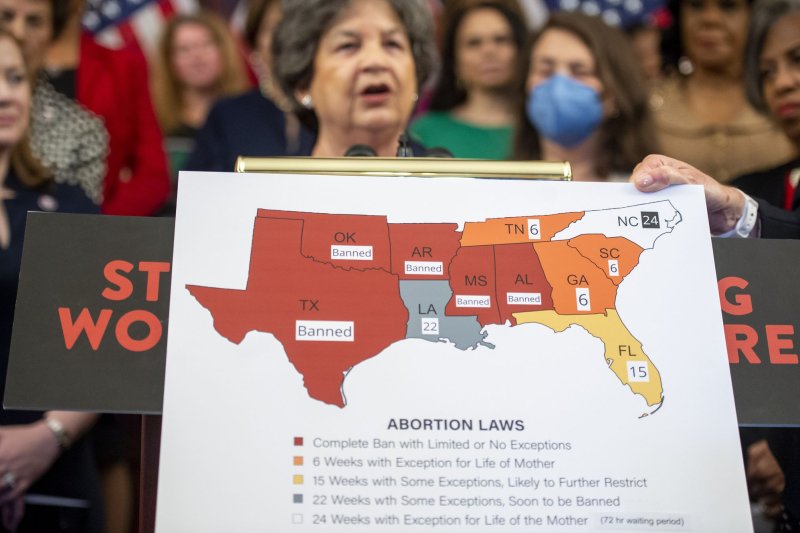1 of 2 | A map of abortion laws in the South is displayed during a press conference with Democratic women sharing stories of the consequences of a depletion in women's reproductive healthcare at the U.S. Capitol in Washington, D.C., on Thursday. Photo by Bonnie Cash/UPI |
License Photo
July 30 (UPI) -- West Virginia lawmakers nearly passed on Friday the nation's first law banning abortion since Roe vs. Wade was struck.
But the Republican-led state Senate had one qualm with the version of the bill already passed by the House of Delegates, which would've banned abortions after 14 weeks: it didn't go far enough.
"This is not a pro-life bill -- this is a pro-abortion bill," said state Sen. Robert Karnes, R-Randolph, as reported by MetroNews.
Instead, the state Senate passed a bill that narrows the window for victims of rape and incest to have access to an abortion, down to eight weeks, provided the assault is reported to law enforcement. In this new version, medical providers that perform abortions face losing their license but no jail time. The Senate voted 23-8 in favor of the legislation, WDTV-TV in Weston, W.Va., reported.
Lawmakers were in session late into Friday night in a series of negotiations that were at times heated and emotional.
West Virginia already had in the books a law from the 1800s that punished abortion with up to 10 years in prison. That law was invalidated by the new standards set by Roe vs. Wade nearly 50 years ago.
Now, legislators in the Republican-controlled state are all-but-set to pass a modern version of the abortion ban.
"I think we have to understand that this is no abortion for poor women," state Sen. Hannah Geffert, D-Berkeley, told her colleagues in session. "Poor women in the state are not going to have a choice because they can't afford to go anywhere else."
The bill now heads to the House of Delegates for conciliation, and then to Republican Gov. Jim Justice's desk for signature.















